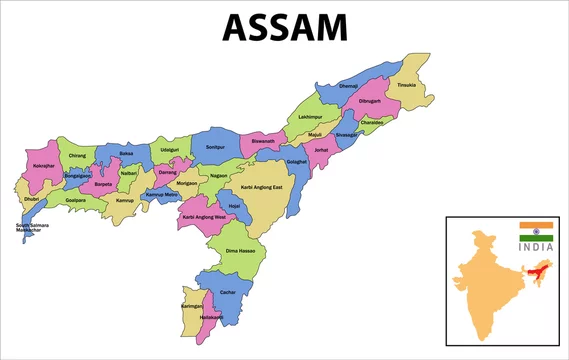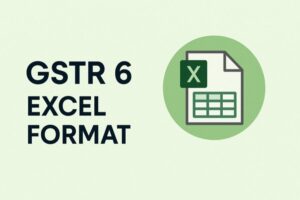Assam Goods and Services Tax (Amendment) Rules, 2017
- 15 Aug 24
- 6 mins

Assam Goods and Services Tax (Amendment) Rules, 2017
Key Takeaways
- The Assam Goods and Services Tax (Amendment) Rules, 2017 were introduced to simplify GST compliance and reduce the administrative burden for businesses.
- Key amendments include streamlined registration processes, simplified tax payment procedures, and clearer invoicing requirements.
- The amendments facilitate quicker and more transparent refund processes, significantly benefiting businesses with frequent refund claims.
- Simplified return filing and reduced frequency for certain taxpayer categories are designed to make the compliance process more efficient.
- Overall, these changes aim to enhance the business environment in Assam by allowing companies to focus more on operational growth rather than on complex tax compliance issues.
In 2017, the Assam Government introduced amendments to the Assam Goods and Services Tax Act Rules, which were initially set in place following the nationwide implementation of GST in July of the same year. These amendments were made to simplify and clarify the existing procedures and make compliance easier for taxpayers within the state.
Overview of Amendments
The Assam Goods and services tax act, 2017, brought several changes designed to streamline the taxation process and reduce the administrative burden on both the tax authorities and the businesses. The amendments cover various areas including registration, tax payments, invoicing, returns, and refunds.
Key Changes Introduced
1. Simplification of Registration Process
The amendments have simplified the registration process for new businesses by reducing the number of forms and the details required in them. This change was aimed at encouraging more small and medium enterprises to comply with the GST regime without feeling overburdened by the bureaucratic process.
2. Revised Tax Payment Procedures
Under the revised rules, the process for tax payments has been streamlined. Taxpayers can now utilize the input tax credit available in their electronic ledger more efficiently to offset their tax liabilities. This amendment helps businesses improve their cash flow management and reduces the complexity previously experienced with multiple tax payments.

3. Enhanced Clarity on Invoicing
The new rules specify more clearly the requirements for invoicing, including the necessary details to be included in a GST invoice. This clarity helps businesses to issue compliant invoices and thus avoid potential penalties for non-compliance with invoicing requirements.
4. Modifications in Return Filing
Significant modifications were made to the return filing process. The amendments aim to make this process more intuitive and less time-consuming by introducing simplified forms and reducing the frequency of filing returns for certain categories of taxpayers.
5. Streamlined Refund Procedures
With the amendments, the procedures for claiming refunds have been made more straightforward. The process has been made faster and more transparent, with provisions for electronic filing and processing of refund claims. This is particularly beneficial for exporters and others who frequently claim refunds under the GST regime.
Implications for Businesses
The amendments to the Assam GST Bill represent a proactive approach by the state government to facilitate ease of doing business. By simplifying various procedural aspects under the GST framework, these changes have helped reduce the compliance burden on businesses significantly.
For Small and Medium Enterprises
Small and medium-sized enterprises (SMEs), in particular, stand to benefit from these amendments. The simplifications in registration and return filing processes mean that SMEs can allocate more resources to their core business activities instead of spending time and energy on tax compliance.
💡If you want to pay your GST with Credit Card, then download Pice Business Payment App. Pice is the one stop app for all paying all your business expenses.
For Large Enterprises
Large enterprises also benefit from clearer guidelines and simplified procedures, especially in terms of compliance with invoicing and refund claims. This helps in maintaining better compliance levels and in efficient management of the tax credits.
Conclusion
The Assam Goods and Services Tax Bill(Amendment) Rules, 2017 have brought significant relief to businesses within the state by making GST compliance less cumbersome and more straightforward. As businesses continue to adapt to the GST regime, these amendments ensure that the focus can remain on growth and development, rather than on navigating complex tax procedures. It is a positive step towards fostering a better business environment and encouraging economic activity in Assam.
 By
By 














